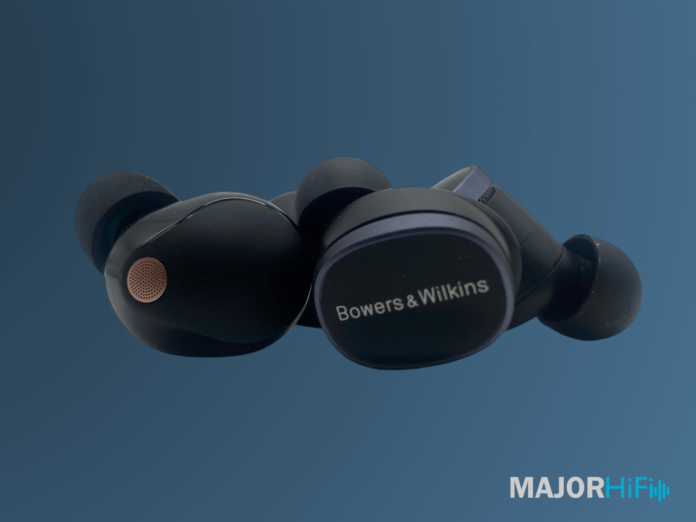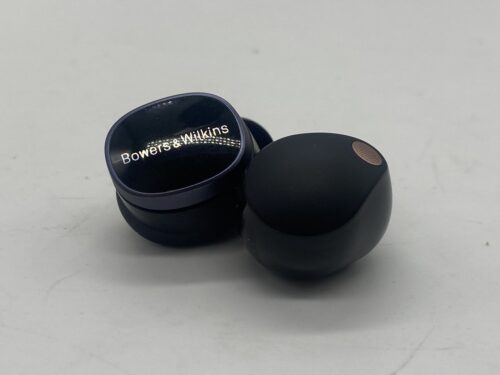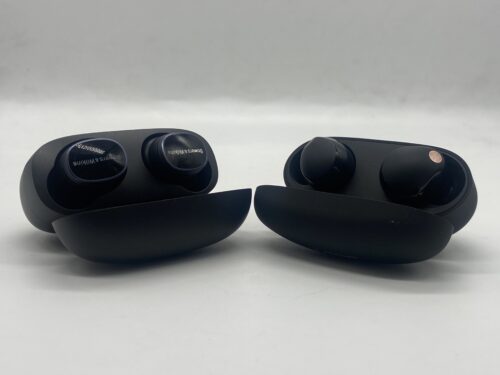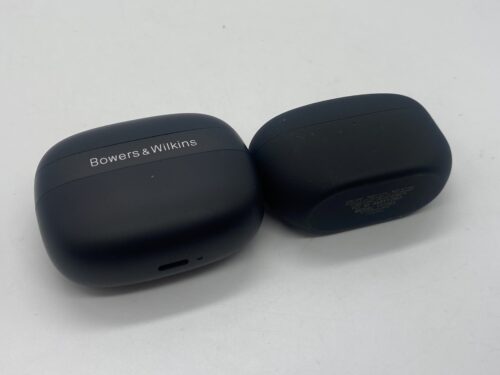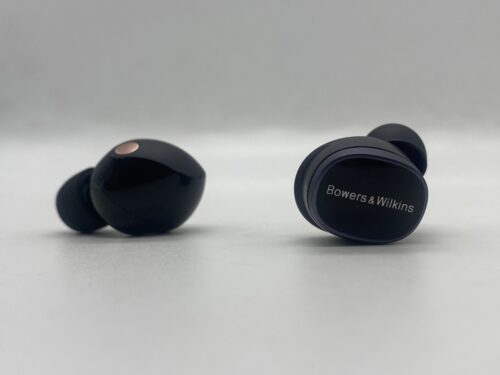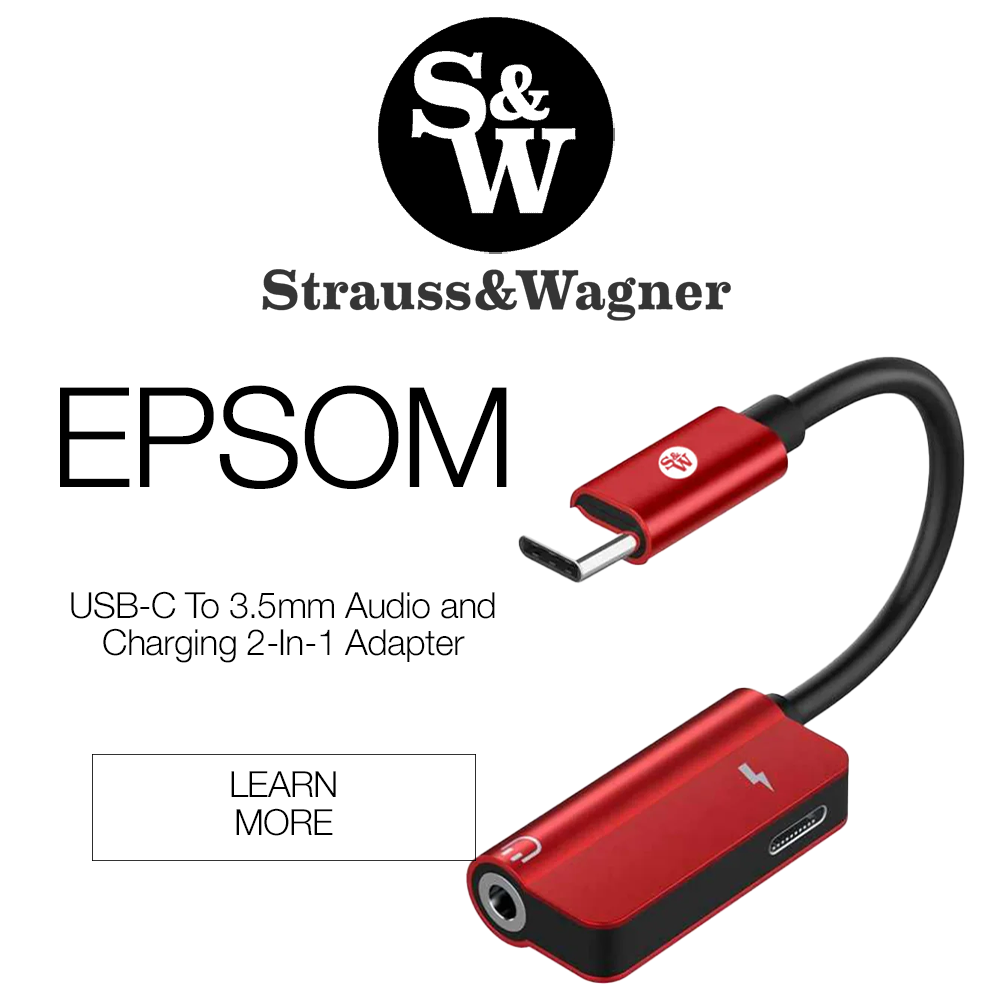The Bowers and Wilkins has only been out for a week, but its impact has already been quite significant. I praised it in my initial review for its sound quality, stylish design, and Bluetooth technology, but how does it compare to one of the most popular true wireless earbuds on the market? The Sony WF-1000XM5 is an industry leader in a few areas, but is it the best choice overall?
What You Get
| WF-1000XM5 | Pi8 |
|
|
Look & Feel
You can’t beat B&W’s luxurious aesthetic, but the XM5 also has an elegant simplicity to its design. When it comes down to comfort though, I think I would rather have the XM5 in my ears for longer than the Pi8. I don’t mind the fit of the Pi8, but my ears felt a bit stretched and fatigued after wearing them for the same amount of time as the XM5.
Design
Both earbuds have their own specially made driver, with the XM5’s X driver and the Pi8’s carbon cone driver. They offer considerable output power compared to a lot of other true wireless earbuds with their gain and headroom. These earbuds have touch sensors, but only the Pi8 allows you to customize controls. You still get pretty responsive actions from both earbuds, with the Pi8 being slightly more reliable. The XM5 will have most earbuds beat in the noise-canceling game though, even if the Pi8 is still effective.
Bluetooth
Only one set of earbuds has LDAC, and only one has aptX Lossless. No matter what CODEC quality you prefer, you should find a stable connection with both the XM5 and Pi8. Both earbuds pair quickly and do not feature any dropouts.
Battery Life
The XM5 has a better battery life than the Pi8 by about two whole hours. For the price, the Pi8’s battery is a lot more disappointing with only around 6 hours of playtime from a single charge for $399.
Soundstage
If 3D sound means nothing to you, you’ll probably prefer the soundstage of the Pi8 over the XM5. It’s far wider and less congested than how the XM5 appears, featuring less solidity and more natural separation. With Sony’s 360 Reality Audio, the XM5 starts to let its soundstage breathe, but you’re limited to the platforms that offer it. Even with its 3D function, the Pi8 still does a better job of making the sounds feel like they’re moving all around you.
Low End
Both the XM5 and Pi8 satisfy in their low-end response. The qualities of Sony’s bass on their 1000x series are consistently enjoyed by listeners, offering a personalized, heavy tone that grows into a significant impact. The Pi8 offers a more articulate and smoother response in comparison. You get a better sense of clarity in specific bass notes, while the sub-bass makes more of an appearance. It lifts up the tone of the bass while still vibrating evenly across the frequency spectrum.
Mids
If you’re looking to get the most instrumental clarity possible from your true wireless earbuds, go with the Pi8 here. The XM5 is mostly recessed and comes off as hollow even with adjustments from EQ. With the Pi8 physical notes are easier to identify, and the midrange frequencies appear fuller as a result. While the XM5 isn’t completely destructive in its midrange presentation, it’s hard to be impressed by it when put up against the Pi8.
Highs
Surprisingly, the XM5 might have the most forward drive regarding the high frequencies. Even though I think I prefer the more delicate sparkle of the Pi8, I appreciate the XM5 for its willingness to provide excitement in its natural tuning. The Pi8 appears a bit softer in comparison, but the texture of the frequencies is more defined and detailed.
Summary
The Sony WF-1000XM5 is always going to have an advantage in the areas it regularly excels, but the Pi8 has plenty of its own notable features that give it a competitive edge. From how I’ve described it, it’s no secret that the Pi8 excels in its tuning compared to the XM5. Noise-canceling and its assortment of features will always be a reason to purchase the XM5 on its own though, and even with the Pi8 supplying its own strong features, the XM5 will always feel like it’s at the top of everything excluding aptX Lossless.
The Sony WF-1000XM5 and the Bowers & Wilkins Pi8 are available at Audio46.
MAJORHIFI may receive commissions from retail offers.


